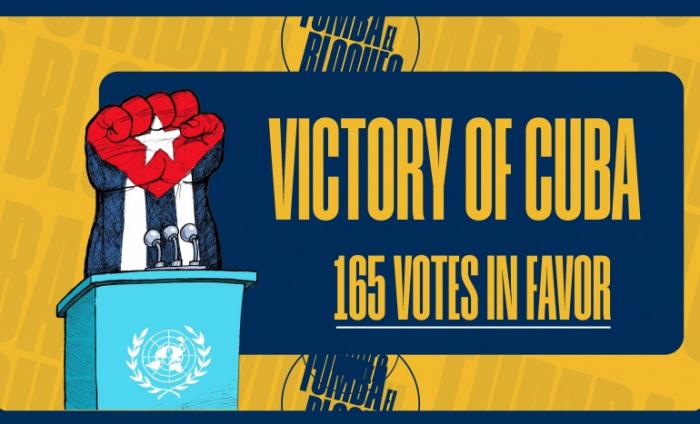Once again, the majority of the international community stands with Cuba, as the Nicaraguan representative to the UN said: "Solidarity is stronger than blackmail."
This was demonstrated before the United Nations General Assembly when 165 countries opposed the economic, commercial, and financial blockade imposed by the United States on Cuba.
Abstentions in this session increased to 12 countries, added to the historic positions against the report by the United States and Israel, plus five other nations.
The results, although not what Washington wanted, were part of the strategy developed by this northern nation in the weeks leading up to the vote.
As Bruno Rodríguez Parrilla, member of the Political Bureau and Minister of Foreign Affairs of Cuba, recently stated, the intensification of pressure, intimidation, and toxicity by the State Department on a global scale to force sovereign states to change their vote on the resolution was, during that period, "brutal and unprecedented."
The Cuban foreign minister argued that the White House used "all its weapons and tricks, especially coercion," and continued: "But truth, law, reason, and justice are always more powerful and compelling," and this was reflected as it has been for more than 30 years.
"It cannot be hidden that, by virtue of the criminal policy of the United States government against Cuba, my country is viciously deprived in every corner of the world of the use of banking systems to make collections and payments," he said.
According to the report discussed today, which covers the period from March 2024 to February 2025: "Dozens of banks suspended their operations with Cuba, including transfers for the purchase of food, medicine, fuel, materials, spare parts for the National Electric Energy System, and other essential goods. The Cuban economy lost traditional suppliers. Due to country risk and the inability to access faster and more expeditious logistics routes, additional costs had to be incurred to acquire these supplies," the document states.
With the "Visa Waiver Program Improvement and Terrorist Travel Prevention Act of 2015" remaining in force, the travel and tourism sector to the island, one of the country's main sources of income, was severely penalized, as the visa waiver program through the ESTA2 system is not valid for people who have visited the Caribbean nation.
Data such as this and other information contained in the report, "Necessity of ending the economic, commercial, and financial embargo imposed by the United States of America against Cuba," demonstrate what Waltz tried to deny in this Assembly session: the embargo does exist.









